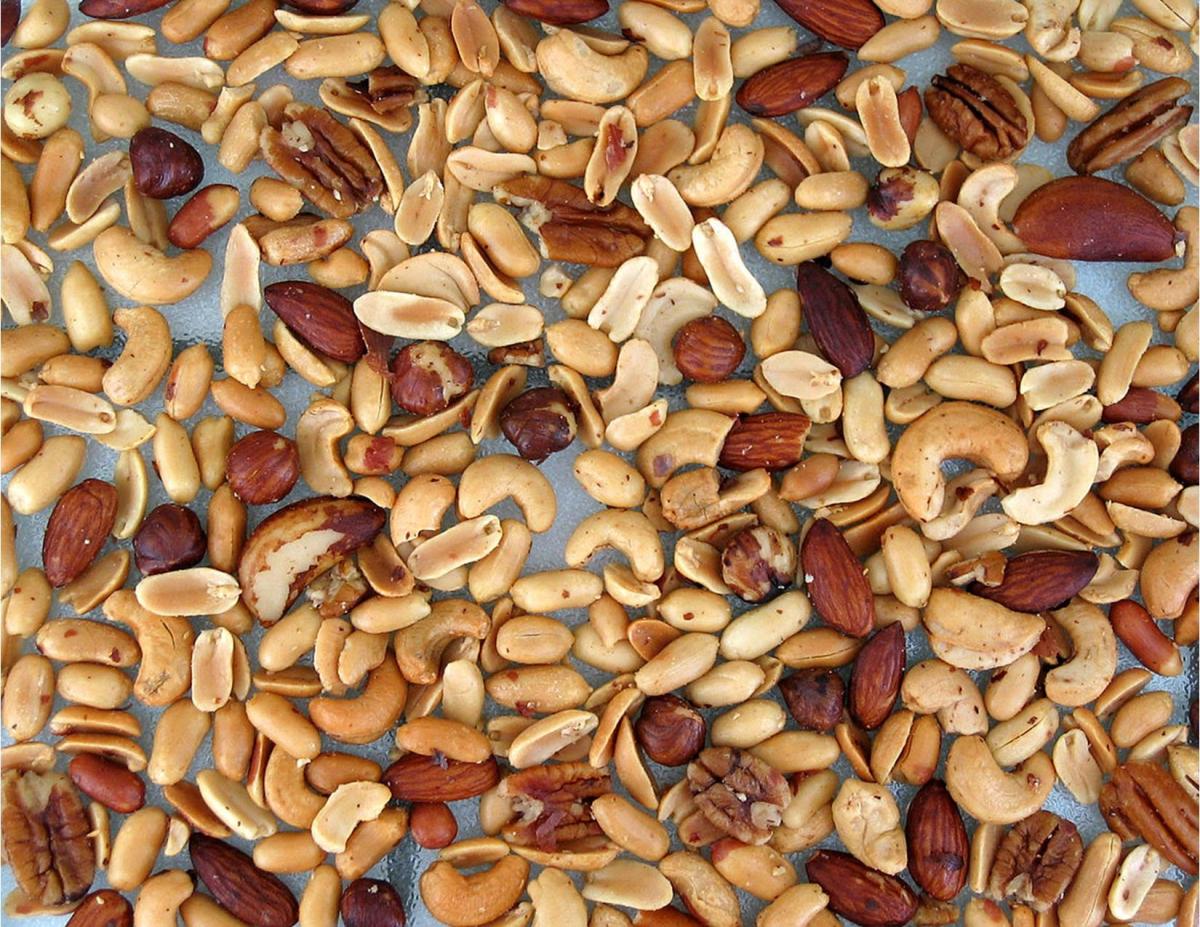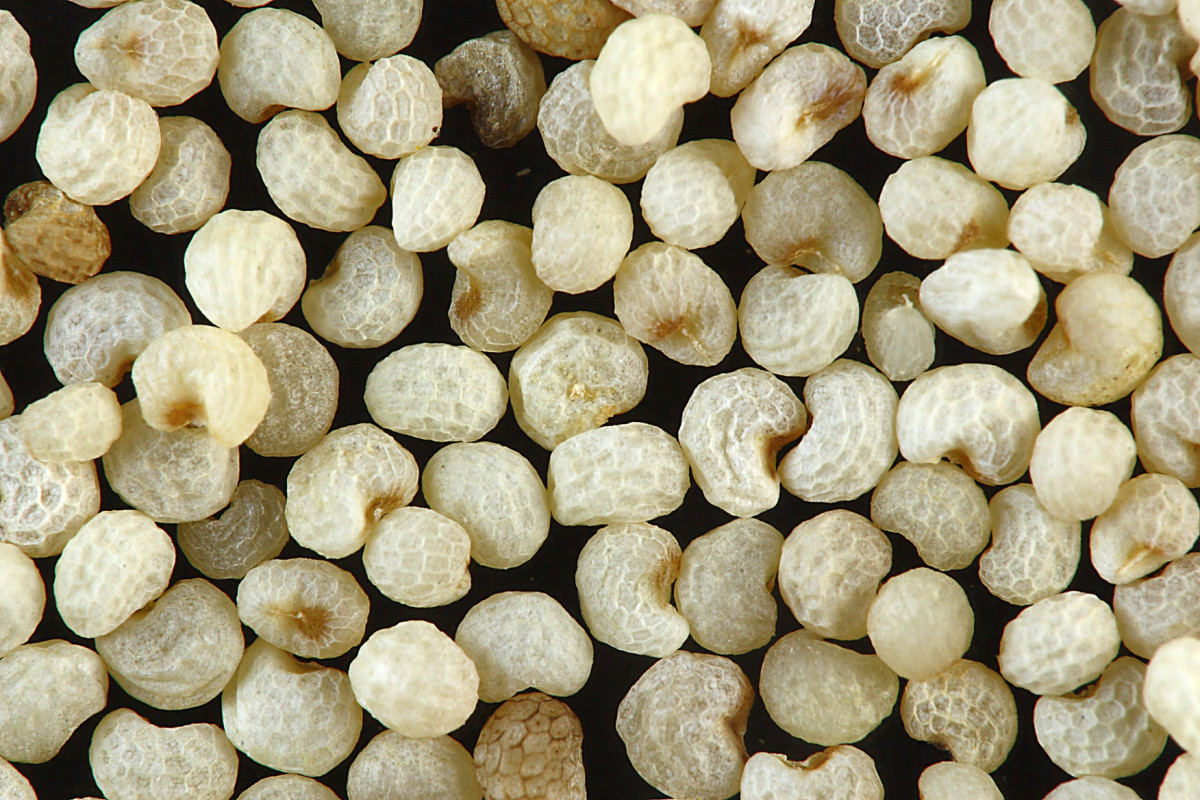Are Nuts Good for Health?
The traditional school of thought is that nuts are in general healthy in moderation for healthy individuals. They are a good source of healthy monounsaturated fats and contains beneficial omega-3 fatty acids. Plus a source of plant-protein.
However, nuts are not intended to be consumed in large quantities. Some say that nuts can irritate the intestinal linings and hence is not beneficial for anyone with digestive issues or autoimmune conditions.
Peanut however is not a good choice. In fact, it is not a true nut. Peanut is a legume which contain the antinutrients lectins and phytic acid. Legumes are one of the food groups avoided in the paleolithic diet.
This article will look more deeply into these topics.
Nuts contain healthy monounsaturated fats
Article titled Types of Dietary Fat and Risk of Coronary Heart Disease: A Critical Review in Journal of American College of Nutrition says ...
"Although nuts are high in fat, the predominant types of fat in nuts are mono- and poly-unsaturated ..., which lower LDL cholesterol level."
The article cites studies that showed that nut consumption is associated with lower cardiovascular risk. A study found that walnuts improved cholesterol profile by lowering the ratio of bad LDL cholesterol to good HDL cholesterol.
A quarter-cup of walnuts has 95% of daily value of healthy omega-3 fats.[reference]
Dr. Andrew Weil loves nuts. As he mentioned in his article, he thinks walnuts are good choice, but peanuts are less so. He writes ...
"Walnuts are an especially good choice because they provide vital omega-3 fatty acids in addition to the vitamin E, trace minerals, and fiber that other nuts contain. (By the way, peanuts are legumes, not nuts, and have a less desirable fatty-acid profile.)"
Peanut and almonds do not have any significant quantity of the beneficial omega-3 fats.
Walnuts for omega-3 fats
Among the types of polyunsaturated fats are omega-3 and omega-6. Both are essential to the body. But modern diets are too high in omega-6 and too low in omega-3. Omega-3 fats are beneficial because they are anti-inflammatory. Excessive omega-6 can be detrimental because they are more inflammatory.
Healthy experts look at the omega-6 to omega-3 ratio of foods. The lower this ratio, the better.
Of all the common nuts, walnuts have the most beneficial omega-3 fats. And it has the most favorable omega-6 to omega-3 ratio as can be seen in the below data gathered from the book The Dietary Cure for Acne. (The lower this ratio, the better).
Walnuts: 4.2
Macademaia nuts: 6.3
Pecans: 20.9
Pine nuts: 31.6
Cashews: 47.6
Pistachio: 51.9
Hazel nuts: 90
Pumpkin seeds: 114.4
Brazil nuts: 377.9
Sunflower Seeds: 472.9
Types of Omega-3
Note however, that the omega-3 that are in nuts are not the same as the omega-3 that we find in fish and fish oil. The form of the omega-3 that is in nuts is the ALA form. The form that is found in fish is the EPA and DHA form of omega-3. It is the DHA form that is found in the brain and that is brain healthy. So omega-3 from fish is naturally more beneficial than the omega-3 in nuts.
Learn more about the various omega-3's and their benefits here.
Peanut Allergies
"Peanuts are a legume and, much like wheat, contain a variety of immunogenic toxins."
In addition, peanuts have a quite bit of inflammatory omega-6 fats. An ounce of raw peanuts contains 4.4 grams of omega-6 and no omega-3. Although both omega's are essential, we like to get more of the beneficial omega-3 fats rather than then inflammatory omega-6 fats.
Some people have severe allergy to peanuts. That is why many packaged foods will label whether it contains peanuts as some people with peanut allergies must avoid any foods containing peanuts. Some people are so sensitive to peanuts that must carry an EpiPen to prevent them from going into prophylaxis shock due to peanut consumption.
The Mayo Clinic writes that ...
"Peanut allergy is the most common cause of food-induced anaphylaxis, a medical emergency that requires treatment with an epinephrine (adrenaline) injector (EpiPen, Twinject) and a trip to the emergency room."
Nut contains health nutrients
Nuts are a good source of healthy nutrient, vitamins, and mineral -- some of which are magnesium, vitamin E, fiber, and potassium (depending on the type of nuts).
A quarter-cup of almonds for example contains 45% daily value of vitamin E, and 25% daily value of magnesium, and 22% daily value of tryptophan.[reference]
The Mayo Clinic writes that nuts contains various heart healthy substances which includes ...
- Unsaturated fats
- Omega-3 fatty acids
- fiber
- vitamin e
- plant sterols
- L-arginine
Are Lectins in Nuts a Problem?
Nuts have some phytic acid and lectins which are considered antinutritents. Some even recommend that people with digestive or autoimmune conditions should not consume nuts and seeds. Because lectins in some nuts can irritate the gut lining and create inflammation. As you saw previously, some nuts can also have high omega-6 which are inflammatory and hence non-beneficial to those with autoimmune conditions.
Lectins when it gets though the gut lining and into the bloodstream can cause cells to clump together. The Dietary Cure for Acne writes that ...
"Lectins act like super glue in the body and can bind and potentially disrupt normal function in almost all of the cells in the body." [page 50]
While the traditional view is that lectins do not get pass the intestinal barrier in healthy individuals and would just pass out in the stool, the book cite studies that some lectins can get into the bloodstream of some individuals. In particular, it was peanut lectins, but it cleared out of the system after four hours.
Others do not think lectins and phytic acid are a big issue when consumed in moderation for healthy people. ThePaleoMom writes ...
"To date, there is no scientific evidence that the lectins in nuts and seeds cross an intact gut barrier or prime the immune system."
But the article does admit that ...
"Tree nuts are one of the top allergens and most common food sensitivities. People with autoimmune disease are very likely to have a leaky gut, which increases their susceptibility to developing food allergies and food sensitivities"
Are Phytic Acid in Nuts in Problem?
Some say that phytic acid in some nuts can bind to healthy minerals in your gut and hence prevent the minerals from being absorbed.
However, Mat Lalonde in a podcast says that this is a misconception:
"Yeah, I think the misconception — and I’ll be honest, I had this misconception — is that consuming a food that contains phytic acid is going to steal nutrients away from you."
And in the same podcast, Chris Kresser sums it up by saying that phytic acid only ...
"reduces the absorption of a mineral in the food that it’s in, but it’s not chelating minerals from your body."
And that is an important distinction.
When it comes to nutrition, nothing is clear cut.









